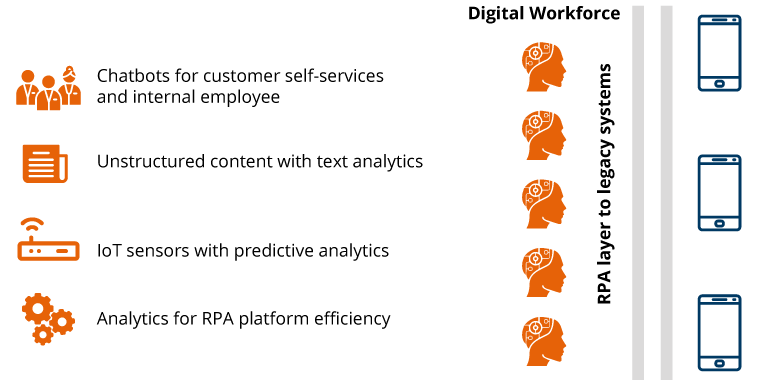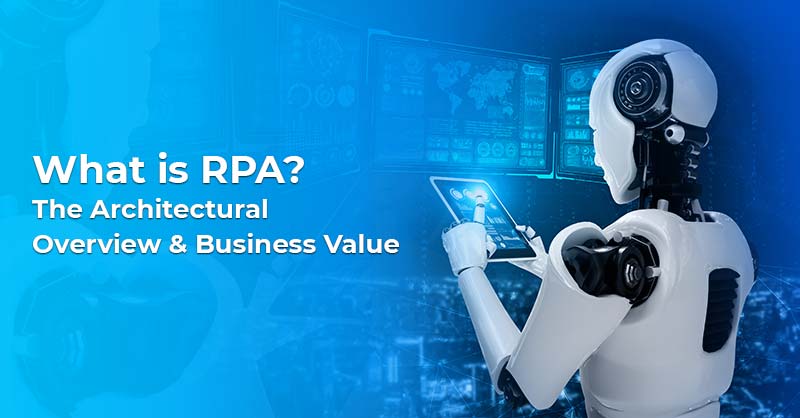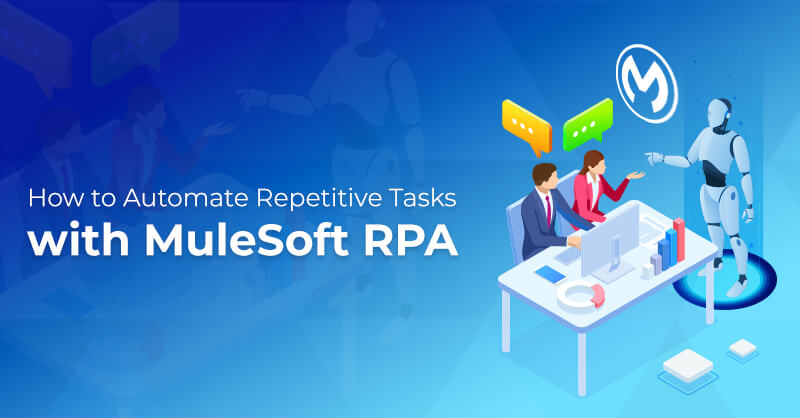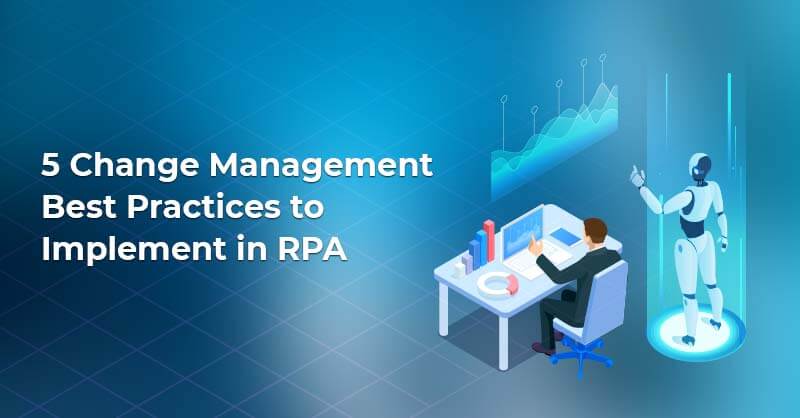How Artificial Intelligence Makes RPA Smarter?
Written by Harini Krish
Lead Technical Content Writer
Artificial Intelligence (AI) and Robotic Process Automation (RPA) have a lot of common features. Robotic process automation provides advanced software robots taking the place of humans whenever complex processes or routine tasks can be automated. AI is the recreation of human intelligence by machines. AI has been extensively used in Deciphering patterns from previous experience, Intelligent decision making, Prescriptive and predictive analytics, and much more.
RPA + AI: Bots can mimic human activity through speech recognition, machine vision, pattern detection capabilities and can handle structured, semi-structured, and unstructured data. Machine learning lets robots learn how to process and improve processes that leads to probabilistic behavior.
As we enter the digital transformation era, industries are reporting that over 80% of their IT process is manually operated, and this leads to lowering their performance and motivation. At the same time, they have estimated that at least 50% of these tasks could be automated.
Need for Intelligent Automation
Intelligent automation combines AI technologies like natural language processing and machine learning with automation tools for automating tasks and DPA (digital process automation) for automating large-scale processes enterprise-wide. End-to-end process optimization is possible with this digital transformation toolset.

- The key objective of intelligent automation is to develop customer and employee experience and boost productivity.
- Improve accuracy in Image recognition and understanding of NPL.
- Process huge amounts of unstructured or semi-structured data.
Industry leaders in intelligent Automation
Leading RPA Vendors like UiPath, Automation Anywhere, and Blue Prism has extended their Support for IA.
Ui Path Artificial Intelligence
UiPath has a wide range of IA; some of the key aspects are as follows.
- Process Understanding- Task Mining
- Document understanding- Invoice and Receipt processing
- Visual Understanding- Computer Vision for Image based Automation
- Conversational Understanding- Natural Language Processing

AI Fabrics
AI Fabrics in UiPath enables Automation developers to directly integrate pre-trained AI Modules into their Flow. Even we can create a custom AI module and train it according to our needs. This entire system follows a closed feedback data loop to train the AI modules continuously.
Automation Anywhere
The Automation Anywhere Enterprise platform has included IQ Bot, A cognitive tool that can process semi-structured and unstructured data to power intelligent automation of end-to-end processes.
Simple drag-and-drop capability in Enterprise A2019 enables AI services such as decision, speech, language, and vision from third-party vendors such as Google, IBM, and Microsoft can be simply added to the workflow.
Use Case for IQ bot in Insurance
If an insurance company decided to intelligently automate its claims process, Automation Anywhere IQ Bot could be deployed to extract and digitize relevant data every time a claim is submitted. Then, it is sent to the fraud detection AI model built in the cloud to see whether the claim was valid based on a fraud score. Moreover, the applicant can submit images of the car damages that could then be sent to computer vision AI models to determine the estimation of the damages.
Smarter RPA with NLP
RPA technologies cannot regulate their procedures without human intervention. However, RPA has the potential to become a suitable step for incorporating more sophisticated cognitive technologies such as Natural Language Processing. Combined with RPA, AI can dramatically improve the way companies address their business processes and operational efficiencies.
Intelligent Automation, main purpose is to analyze the automated processes to tune them and adapt to changing circumstances, thus maximizing ROI. They also provide process owners and other stakeholders a clearer picture of the processes inside the company: what works well, what doesn’t, what bottlenecks exist in the processes, etc.
This is one of the benefits of intelligent process automation as it lets the businesses to be proactive in their automation journey, analyze results, and identify additional automation opportunities faster. For more information on how Royal Cyber can assist in Applying RPA & AI in your environment, you can email us at [email protected] or visit www.royalcyber.com



